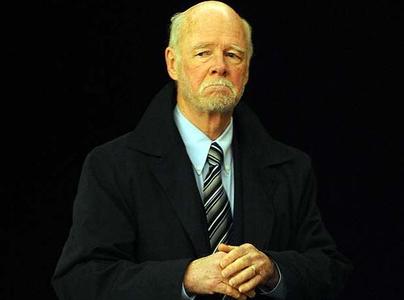

Twenty-one of Canada's most senior judges began scripting the final chapter in Justice Paul Cosgrove's career yesterday after the former Scarborough mayor and federal Liberal cabinet minister made one last plea to retain his office.
"I'm 74 years of age and I've been a judge close to a quarter century. Being a judge allows me to contribute to the community in the best way I know how," he said, trembling slightly from behind a podium.
The spectacle took place in a Toronto hotel ballroom during a rare public meeting of the Canadian Judicial Council.
In a 4-1 decision last December, a judicial council inquiry panel recommended Cosgrove be removed from office for misconduct during an Ottawa murder trial ten years ago.
The panel rejected submissions from Chris Paliare, Cosgrove's lawyer, and Earl Cherniak, independent counsel to the inquiry, that the drastic step was unwarranted.
"It is capital punishment for a judge," Paliare said yesterday.
The full council, made up of chief justices and associate chief justices across the country, is now preparing a recommendation to federal Justice Minister Rob Nicholson on whether Cosgrove should be considered unfit for office.
The council isn't bound by a decision of one of its inquiry panels. Last year, it reversed another panel's recommendation that Toronto judge Ted Matlow be removed from the bench for misusing his position in a campaign against a development project in his Forest Hill neighbourhood.
The council has convened just three times to hear submissions from an embattled judge.
Cosgrove asked that he be permitted to remain in office until he reaches mandatory retirement age next December, urging that his mistakes in the Julia Elliott murder case be considered in the context of his lengthy Superior Court career.
"It is a humbling experience to appear before you today and I am acutely aware of the fact my judicial career hangs in the balance," said Cosgrove, who was appointed by former prime minister John Turner in 1984.
He's based in Brockville and has been a driving force behind restoring its historic courthouse.
"Being sworn in as a judge was a matter of great pride for me (and) being a judge has been the focus of my working, community and social life since that time," he added. "The last thing I would hope for is to bring disrespect to this office."
No federally appointed judge has ever been removed from office, which can only be done by Parliament.
Yesterday's meeting, chaired by Manitoba Chief Justice Richard Scott, was the culmination of a five-year process that started when former Ontario attorney general Michael Bryant filed a complaint with the council.
Bryant alleged Cosgrove sullied reputations and "villified" the state in a 1999 judgment that freed Elliott, a Barbados masseuse, from charges of killing Kemptville-area mechanic Larry Foster, 64, whose body parts were found floating in the Rideau River in 1995.
Cosgrove found police and prosecutors committed more than 150 violations of Elliott's Charter rights.
Yesterday, Cosgrove told the council he was a member of former prime minister Pierre Trudeau's cabinet when the federal government repatriated the Constitution and introduced the Charter in 1982.
But while he made full use of the Charter in the Elliott case, he was later taken to task by the Ontario Court of Appeal. In a scathing decision in December 2003, the court labelled most of his conclusions in the Elliott case baseless, including a finding that the province's deputy attorney general directed Crown attorneys to give false information to the court. The appeal court criticized Cosgrove for misusing his contempt powers and ordered Elliott retried. She pled guilty to manslaughter and is serving a prison term.
Four months after the appeal ruling, Bryant filed his complaint, triggering a public inquiry.
Cosgrove launched a constitutional challenge to the process. Last December, the judicial council panel took a dim view of his decision to spend years fighting the legislation before apologizing for his conduct in the Elliott case, which included the use of intemperate language.
But yesterday, Cherniak had a different perspective, arguing Cosgrove's apology was sincere, despite the delay.
Cosgrove had the right to challenge the legislation, he added.
Although Bryant alleged the public could not have confidence in Cosgrove's abilities as a judge, he continued to hear cases after the Elliott trial ended in 1999 until 2004, when the complaint was filed, with no objections from lawyers who appeared in his court, including Crown attorneys from the Elliott case, Paliare said.
Cosgrove also had permission from his chief justice to preside on family law cases and pre-trial conferences after winning his constitutional challenge in 2005. (It was later overturned)
This should be taken into account in deciding whether he's unfit for the job, as should support letters from lawyers, judges and community members, Paliare argued.
While the inquiry panel refused to consider them, the judicial council in the Matlow case said it was an error in principle to brush such evidence aside, he said.
Last fall, Paliare and Cherniak submitted that having the judicial council deliver a strong admonition to Cosgrove was the appropriate sanction.
Yesterday, Cherniak acknowledged the inquiry panel had the right to take a vastly different view.
The council reserved its decision.